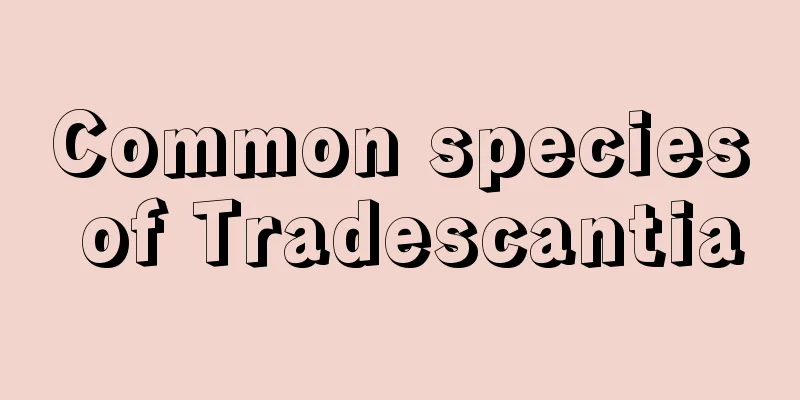Common species of Tradescantia

Tradescantia albaWhite spiderwort, also known as pale bamboo leaves and white spiderwort, is a perennial herb. White-flowered Tradescantia prefers a warm and humid climate. Its origin is South America, including central Brazil, Uruguay and Paraguay. From a morphological point of view, the stems of white-flowered Tradescantia are creeping and can reach 60 cm in length, with a purple-red halo and slightly enlarged nodes that are easy to root at. The leaves are alternate, oblong or ovate-oblong, with leaf tips, and only the upper end of the leaf sheath is hairy with white stripes. The biggest feature of white spiderwort is that its flowers are small and white in color, and it blooms in summer and autumn. Tradescantia chinensisGolden Leaf Tradescantia is a variant of Blue Flower Tradescantia. It is strong and cold-resistant, and can overwinter in the open field in North China. The flowering period is from April to November. The flower stems are upright, the nodes are obvious, the plant shape is peculiar and beautiful, the flower color is blue and purple, and the three petals support the fluffy stamens, which is extremely pretty. The most distinctive feature of Golden Leaf Tradescantia is its golden leaves, which distinguishes it from other Tradescantia varieties. Tradescantia scabraRed-flowered Tradescantia, also known as carmine Tradescantia, has a long flowering period, from May to October. Red-flowered Tradescantia is a perennial evergreen herb. In winter and spring, the edges of its leaves turn purple on both sides and the middle turns green. The biggest feature of red-flowered Tradescantia is that it blooms carmine red flowers, so it is called red-flowered Tradescantia. Red-flowered Tradescantia prefers sunlight but is also shade-tolerant. It is drought-resistant and cold-resistant, and can tolerate poor soil and alkaline soil. It has strong adaptability and a certain ability to resist waterlogging. It grows well and rapidly in East China, North China and other regions. This flower is suitable as ground cover plant and background material in flower beds. Tradescantia pubescensThe calyx and pedicel of Hairy-calyx Tradescantia are obviously covered with hairs. From this feature, it is relatively easy to identify Hairy-calyx Tradescantia. |
<<: Coral vine cultivation methods and precautions
>>: The breeding methods and precautions of Chinese giant thorn
Recommend
How to propagate mugwort and what to pay attention to
Artemisia argyi propagation method Mugwort is mai...
David's breeding methods and precautions
1. Maintenance methods 1. Soil: It likes to grow ...
The difference between narrow-leaved dracaena and sword-leaved dracaena
1. Difference of blades The leaves of the narrow-...
When is the best time to prune roses?
Overview of Rose The rose blooms for a long time,...
When is the best time to sow Platycodon grandiflorum?
Platycodon grandiflorum sowing time Platycodon is...
The difference between elmleaf plum and peach
Different families Prunus armeniaca is a plant of...
The correct way to repot succulents
As the temperature becomes pleasant, many plant l...
Can rice bran be used to grow flowers (can rice bran be cooked and fermented and put into a flower pot to grow flowers)
Rice bran is a byproduct of rice, wheat and other...
Introduction to multi-headed chrysanthemum varieties and pictures of multi-headed chrysanthemum
1. Introduction Multi-headed chrysanthemum, also ...
Four Seasons Maintenance Tips for Red Flower Jade
Spring and Autumn Maintenance The red flower jade...
You can buy a pot of colorful peppers for 4 yuan, and 100 fruits will pop out. You can make hot sauce with it to eat 3 bowls of rice!
4 little tricks to make colorful peppers bear fru...
What month is the best time to plant watermelons?
With its sweet taste and cooling properties, wate...
Introduction to cherry varieties, pictures of cherries
1. Introduction of cherry varieties Early Ruby: T...
What does it mean when asparagus fern blooms?
1. Meaning The flowering of asparagus fern has a ...
Why did the leaves of the transplanted osmanthus fall off?
1. Water shortage After transplanting osmanthus, ...









